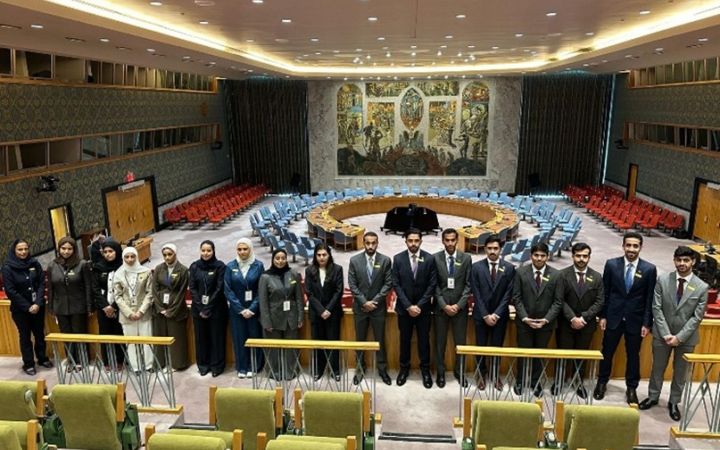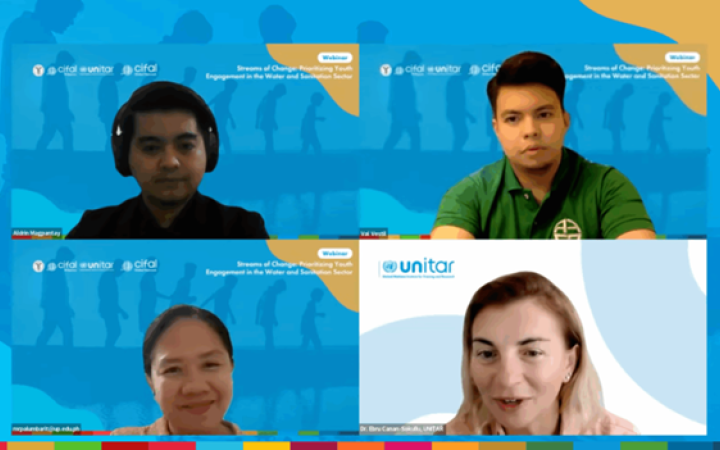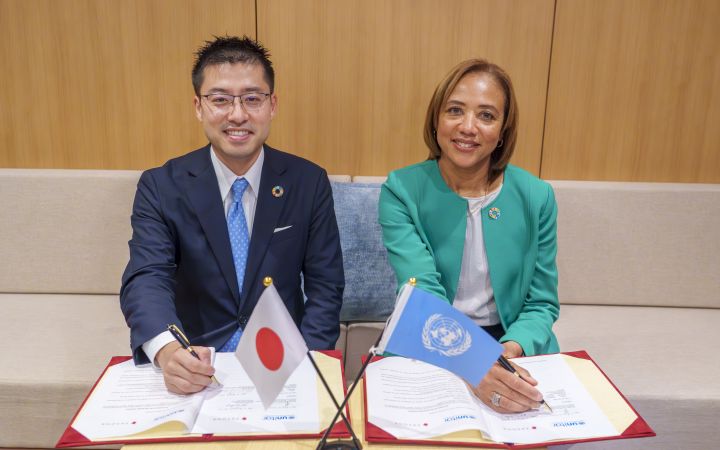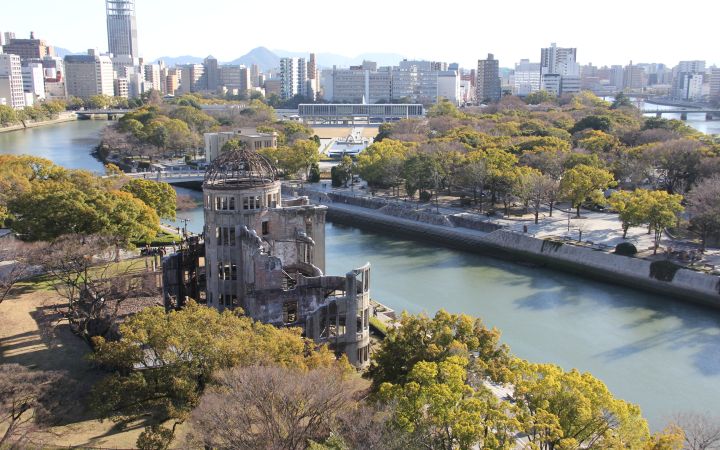Displaying 131 - 140 of 1768
11 August 2025, New York, USA – From 1 July to 5 August 2024, the United Nations Institute for Training and Research (UNITAR) New York Office, in partnership with the Qatar Leadership Centre (QLC), hosted an exclusive fellowship programme for students from various universities across Qatar. This unique five-week initiative was designed for third- and fourth-year students, offering them an exceptional opportunity to gain in-depth knowledge, practical professional experience, and critical leadership skills through immersive training with multiple United Nations agencies.
During the fellowship’s orientation programme, students explored key concepts such as the art of international negotiation and multilateral diplomacy, the organizational structure and functions of the United Nations, the research and analysis of General Assembly documents, and the UN’s role in advancing the global development agenda through sustainable development goals and international cooperation. Following this foundation, fellows participated in a month-long internship with various UN agencies, gaining practical experience in the organization’s work.
During the fellowship’s orientation programme, students explored key concepts such as the art of international negotiation and multilateral diplomacy, the organizational structure and functions of the United Nations, the research and analysis of General Assembly documents, and the UN’s role in advancing the global development agenda through sustainable development goals and international cooperation. Following this foundation, fellows participated in a month-long internship with various UN agencies, gaining practical experience in the organization’s work.
7 August 2025, Geneva, Switzerland – In celebration of World Youth Skills Day, the UNITAR Global Water Academy and CIFAL Philippines at the University of the Philippines co-hosted a virtual event entitled “Streams of Change: Prioritizing Youth Engagement in the Water and Sanitation Sector.” The session convened emerging professionals across water, sanitation, and hygiene (WASH) programmes, highlighting the vital role of youth in advancing Sustainable Development Goal 6 (SDG 6): Clean Water and Sanitation for All.
7 August 2025, Abuja, Nigeria - In the framework of the Fleet Safety Global Training Programme regional workshop held on 30-31 July 2025 in Abuja, Nigeria, the first regional meeting of CIFAL Centres based in Africa took place. The meeting brought together directors of CIFAL Durban, CIFAL Dakar, CIFAL Banjul, and CIFAL Nigeria to strengthen collaboration and expand capacity-building initiatives across the region. The meeting focused on the theme of road safety, bringing together experts from across the region to exchange good practices and identify priority training needs.
7 August 2025, Hiroshima, Japan – On 6 August 2025, the United Nations Institute for Training and Research (UNITAR) and the Japanese professional basketball team, Hiroshima Dragonflies Corporation (Hiroshima Dragonflies), signed a renewed memorandum of understanding to strengthen further collaboration in the implementation of projects and awareness activities for sustainable development and peace through sports activities.
7 August 2025, Abuja, Nigeria - In collaboration with Rivers State University and Together for Safer Roads (TSR), UNITAR successfully concluded its “Fleet Safety Regional Training Workshop” in Abuja, Nigeria, on 30-31 July 2025, bringing government officials from the Ministry of Transport of Nigeria, the Federal Road Safety Corps (FRSC), companies operating midsize and large-sized fleets in Nigeria, along with representatives from the Rivers State University. International participants included representatives from the Ministry of Transport, Works and Infrastructure of The Gambia, municipal leaders from the eThekwini Municipality in South Africa, the City of Dakar in Senegal, and the New York City Department of Citywide Administrative Services in the USA. Private sector companies operating fleets in the USA, Mozambique, Nigeria and Zambia, along with TSR experts, shared good practices in fleet management and exchanged regional and global road safety approaches.
6 August 2025, Hiroshima, Japan – On 6 August 2025, marking the 80th anniversary of the atomic bombing in Hiroshima, the United Nations Institute for Training and Research (UNITAR), with the Hiroshima Prefectural Government and the Hiroshima Organization for Global Peace (HOPe), held a youth dialogue for international peace, “80 Years After the Hiroshima A-bomb: Youth Messages from Hiroshima to the World – Roadmaps Towards a World Without Nuclear Weapons and Sustainable Peace.”
12 August 2025, Hiroshima, Japan – UNITAR invites 100 participants, aged 18 and above, living in or from Pacific Island countries and territories or the Asia-Pacific to apply for the Japan-funded “UNITAR Women’s Leadership in Disaster Risk Reduction Training Programme for World Tsunami Awareness Day 2025”. The programme will equip the participants with lifelong skills in disaster risk reduction and inclusive leadership. The deadline for applications is 3 September 2025 (11:59 p.m. JST [UTC+9]).
3 August 2025, Osaka, Japan - Michelle Gyles-McDonnough, Assistant Secretary-General of the United Nations and Executive Director of the United Nations Institute for Training and Research (UNITAR), visited the Expo 2025 Osaka and spoke at an event held at the United Nations (UN) pavilion. This marks her first visit to Japan since officially taking up the post at UNITAR in February this year. From 5 to 6 August, she is scheduled to visit Hiroshima, which will commemorate the 80th anniversary of the atomic bombing, and participate in the Hiroshima Peace Memorial Ceremony.
3 August 2025, Osaka, Japan - The United Nations Institute for Training and Research (UNITAR) and Pasona Group Inc. signed a new Memorandum of Understanding (MOU) on 3 August at the UN Pavilion at EXPO 2025 Osaka, Japan, reaffirming both parties’ commitment to accelerating joint efforts toward sustainable growth and inclusive prosperity worldwide.
29 July 2025, Hiroshima, Japan – On the 80th anniversary of the atomic bombing of Hiroshima, the United Nations Institute for Training and Research (UNITAR), in collaboration with Hiroshima Prefectural Government and the Hiroshima Organization for Peace (HOPe), will hold a youth dialogue for international peace on 6 August 2025. The event will be publicly livestreamed in Japanese and English.











